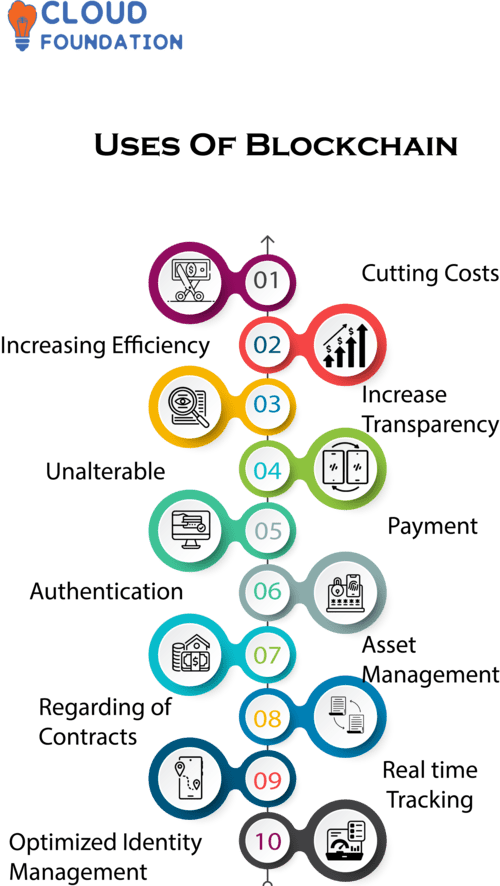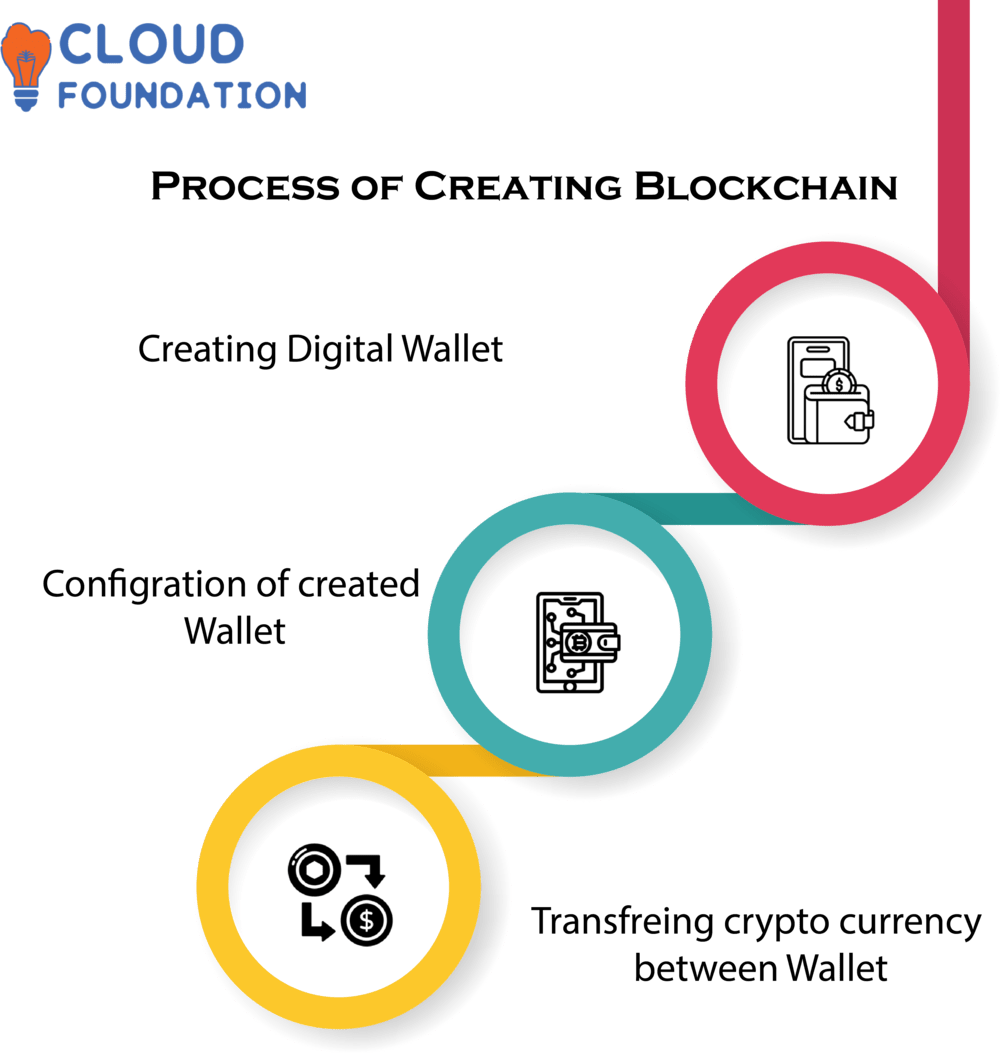What is Blockchain?
Blockchain technology provides a decentralised digital ledger that can safely store and transact data online.
As it serves as an open and distributed database system that updates records incrementally without risk of unauthorised changes being introduced into them, Blockchains provide secure digital storage solutions.
Each piece of information is stored within its own block, and this chain connects all these blocks together to form one complete file.
Blockchain transactions cannot be modified once added to its distributed ledger; using sophisticated cryptography for verification and approval processes makes these ledgers even safer to use than ever.
Blockchains offer an effective solution to safeguard data archives while conducting online business, providing secure archiving solutions and conducting transactions safely and reliably. Here is some
Overview, Introduction To BlockChain
Blockchain technology consists of data blocks that have been digitally signed and encrypted in order to maintain their integrity, thus creating a distributed ledger in which information is not held on one single server, but across many computers spread throughout a network.
Blockchain technology provides secure and transparent environments to conduct large-scale voting, financial transactions and identity management operations.
Blockchain technology offers safe and efficient transaction processing; yet its potential to disrupt various industries could yield substantial cost-cutting for companies as well as open up opportunities for all.
Blockchain Definition OR Define Blockchain
Assuming you use encryption technology correctly and with care, a data backup solution should be safe from being altered or changed and can record diverse types of information and data.
Plus, dispersion ensures covert manipulation remains difficult.
Blockchain is a decentralized digital ledger designed to record transactions between nodes. This immutable ledger records any type of transaction relating to finances or digital assets securely.
Blockchain technology enables secure digital transactions while decreasing business expenses. Blockchain allows increased transparency and trust between parties as it stores transactional information safely while helping reduce fraudulent activities that often cost much more.
What Does Blockchain Do And What Is Blockchain Used For?
In order to record and verify transactions across a network of computers in an unalterable and incorruptible fashion, blockchain technology was created.
Blockchain technology is used to protect information shared over networks that is accessible by anyone with Internet access, with applications including digital money transactions, identity management and digital record-keeping being some of the primary applications.
Blockchain can be utilized for several uses: smart contracts, decentralised applications (Dapps), digital asset management services, financial services, healthcare management, supply chain administration.
Uses Of Blockchain

Blockchain is an advanced technological solution with great promise of dramatically cutting costs, increasing efficiency and increasing transparency across industries. Blockchain acts like an unalterable.
Secure digital ledger which stores records in an impenetrable, safe manner — promising significant cost reduction, increased efficiencies and greater transparency across sectors.
Data stored by blockchain represents assets or agreements between parties and can be used for payments, tracking, authentication, asset management and traceability among many other uses.
Due to its decentralized and secure nature, blockchain eliminates fraud and errors associated with third-party intermediaries by creating one shared system of records across all parties involved in an agreement.
Blockchain’s decentralized, distributed, and cryptographically secure platform builds trust between its users allowing them to exchange value without third party intermediaries.
Utilisation Of Blockchain Blockchain can also help facilitate financial transactions safely and efficiently.
Contracts can be recorded, with blockchain used to fulfill any agreements made between two or more parties. Furthermore, its distributed ledger technology serves to safely store non-crypto assets like documents, artwork and music beyond cryptocurrency itself.
Blockchain technology can be leveraged to fulfill contractual obligations from product shipment agreements to employment contracts.
Blockchain technology enables supply chain companies to keep an accurate record of inventory and shipment across numerous locations and nodes within a network, eliminating errors that commonly arise with manual processes and discrepancies that often arise with such procedures.
Errors caused by human intervention are greatly diminished through blockchain’s real-time tracking feature, while errors that often arise manually become significantly less of an issue as a result of its transparency and accountability.
Blockchain technology may be utilized to securely store patients’ medical records and allow only authorized healthcare professionals and insurance providers access. Furthermore, it’s useful for ensuring only relevant individuals gain access to one’s records.
Distributed Ledger System for Optimized Identity Management.
Why Blockchain And What Are The Benefits Of Blockchain?
Blockchain technology gives all network members access to an immutable record of data which cannot be altered at any point, providing users a safe, transparent, and trustworthy method for exchanging digital assets by harnessing distributed ledger technology.
Benefits of BlockChain
One of the key advantages of Blockchain technology lies in its security: blockchain’s use of cryptographic hashing allows transactions to remain both private and secure.
Blockchain networks enable complete transparency for their users by eliminating any need for trusted third-parties; additionally, new opportunities arise for auditing and regulation purposes.
Data added to a distributed ledger using blockchain technology cannot be altered or deleted once recorded; thus thwarting hackers or fraudsters. Furthermore, its increased speed, cheaper transactions costs, and automation benefits increase business efficiency and boost performance.
Blockchain technology’s flexibility enables its deployment across diverse fields such as healthcare and finance.
Advantages of Blockchain
Blockchain offers increased safety due to its decentralized ledger technology foundation, while data stored within is protected against manipulation due to being encrypted with sophisticated cryptographic systems.
Blockchain technology holds great promise to streamline payments processing more rapidly than current payment systems do, using smart contracts to automate payments and minimize processing times.
Blockchain technology offers significant savings in transaction fees by eliminating middlemen. Blockchain’s distributed ledger ensures that all parties involved can verify and trace details of transactions without any third-party interference or oversight.
Increased trust and openness can be particularly valuable assets in industries like supply chain management.
Enhance Product Authenticity and Trackability: Blockchain technology makes implementing product tracking systems simpler, making supply chain management much less cumbersome and saving both time and money in the process.
Businesses could use it for user verification as well as product authentication to save both time and resources.
What Is Blockchain Software And How To Use The Blockchain Software?

In order to safely store and manage information, blockchain software uses digital distributed ledgers or databases with blocks encrypted and timestamped as transactions recorded – providing a safe chain to hold on to.
Data integrity can be maintained while also building public trust and cooperation through permanently recording transactions in an immutable public ledger
Such as Bitcoin’s decentralised, peer-to-peer platform for exchanging digital tokens of value (also referred to as “cryptocurrencies”). Blockchain technology makes exchanging such digital assets both secure and convenient.
Ethereum, another blockchain platform, facilitates decentralised execution of smart contracts. Money or assets may be directly transferred between users without going through intermediaries.
Payments, banking, voting, commodity trading, data storage, healthcare delivery systems and transportation may all stand to gain from its implementation.
How to use blockchain?

To Get Started With Blockchain Tech Create A Digital Wallet: When starting to utilize blockchain technology, the first thing that must happen is creating a digital wallet to store Bitcoin, Ethereum, Litecoin or any other form of cryptocurrency that you wish to own or invest in. A third-party service
such as Coinbase may help, or you could build one yourself using computer programs available online like Wirex Wallet Creator Pro for instance.
An appropriately configured wallet allows for safe sending and receiving of digital currency. Transferring cryptocurrency between wallets works similarly to using banks; only, without intermediary services required for transaction.
Smart Contract Technology: Smart contracts provide users with an alternative to third-party mediation by securely storing and executing digital agreements on blockchain technology,
Eliminating concerns over late payments, fraud or any other impediments to transactions.
Users may move ahead with transactions without worrying about late fees or unexpected hurdles that might prevent success in making transactions on time or as promised.
Dapps Set New Records in Financial Deals: Dapps (or “decentralised applications”) are simply blockchain-based software applications used for financial deals.
User interfaces offer users access to interact with and understand blockchain transactions and interactions – for instance the issuing of digital assets (assets that exist solely digitally) into circulation.

Shekar
Author
“Let’s dive into the world of tech imagination with me!”

